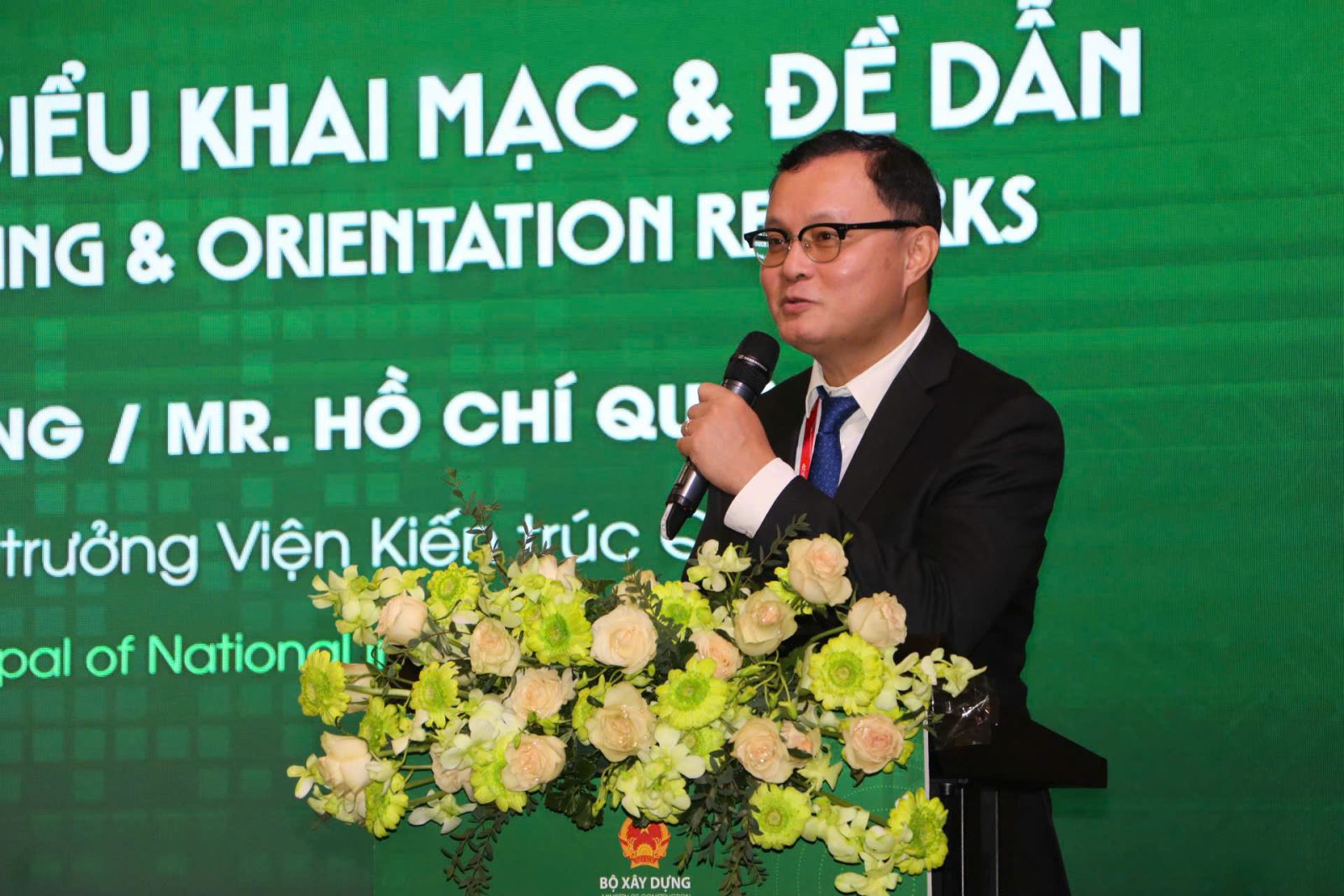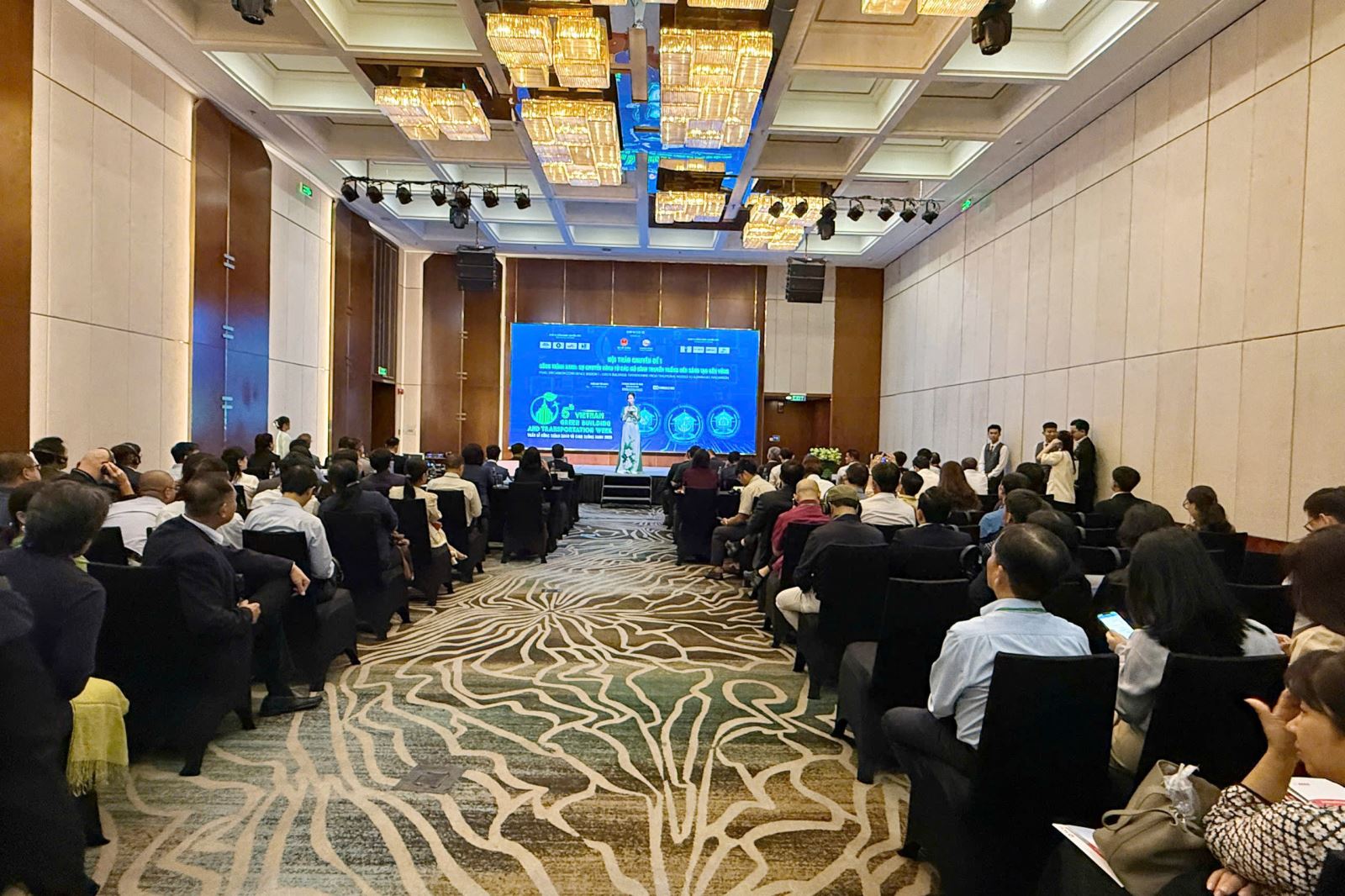Within the framework of the Vietnam Green Building and Green Transport Week 2025, the National Institute of Architecture (under the Ministry of Construction) organized a seminar: "Green Building: The transformation from traditional models to sustainable innovation", with the participation of many experts, managers, architects and businesses to discuss solutions to promote green transformation, international integration and climate change response, on October 29th, in Ho Chi Minh city.
In his opening remarks, Dr. Hồ Chí Quang, Director of the National Institute of Architecture, stated that throughout history, traditional structures have reflected the spirit, culture, and craftsmanship of humankind in the face of nature. They are invaluable lessons in adaptation, the use of local materials, and the effective utilization of natural conditions.
However, as the world faces serious challenges from climate change, rapid urbanization, resource depletion, and environmental pollution, the Fourth Industrial Revolution and the explosion of urban development have brought humanity to a critical crossroads.

Director of the National Institute of Architecture Ho Chi Quang speaks at the conference.
“The transition toward green buildings is no longer a choice but an urgent necessity, from shifting passive principles to proactive solutions; from one-way energy consumption to smart energy production and management; and from viewing buildings as isolated entities to integrating them into the urban and natural ecosystem,” Quang said.
He added, green buildings not only minimize environmental impact and save energy but also enhance quality of life, promote a green economy, and contribute to achieving the United Nations Sustainable Development Goals (SDGs), particularly SDG 11 on sustainable cities and communities, and SDG 13 on climate action.
The year 2025 marks a turning point as Vietnam implements Resolution No. 57-NQ/TW, which sets out the direction for restructuring the economy based on innovation and green transition. In the fields of architecture and construction, numerous action programs have been launched to improve energy efficiency, promote the use of environmentally friendly materials, and help reduce greenhouse gas emissions.
In this context, the thematic workshop “Green Buildings: The Transformation from Traditional Models to Sustainable Innovation” serves as a platform to discuss opportunities, challenges, and proposes solutions to remove barriers, promote green buildings, and green transition in the construction sector. It is also an occasion to share experiences from advanced countries such as Singapore, South Korea, and those in Europe, and to seek innovative solutions suited to Vietnam’s conditions from environmentally friendly materials and energy-efficient technologies to design approaches that integrate nature into urban spaces.
Speaking at the workshop, Dr. Architect Trịnh Hồng Việt, Deputy Director of the National Institute of Architecture, noted that green buildings are evolving into smart buildings driven by data and artificial intelligence (AI). Machine learning technologies enable buildings to self-adjust, optimize energy use, enhance living quality, and reduce operating costs.
However, in Vietnam, the development of smart buildings remains limitation due to high initial investment costs, the lack of standardized data and unified connectivity platforms, as well as the absence of national standards for “Smart Buildings”.
Dr. Architect Trịnh Hồng Việt stated that after many years of effort, the number of certified green buildings in Vietnam has exceeded 600, with a total floor area of nearly 17 million square meters. This represents a significant advancement compared to previous years, demonstrating that the green transition has become an inevitable development trend, no longer merely a slogan.

Seminar scene.
From a cultural perspective, Architect Nguyễn Thu Phong, Vice President of the Vietnam Association of Architects, emphasized the importance of indigenous knowledge, local materials, village structures, and traditional tropical architecture in promoting the green transformation in architecture and construction, which are also the foundations for creating climate-adaptive and environmentally friendly living spaces.
At the workshop, experts and delegates actively discussed emerging technologies, innovative financial models, and pioneering policies that have been reshaping the global construction landscape. They also proposed practical ideas and solutions to help advance Vietnam’s construction industry toward greater international integration and a greener, more sustainable future.
Experts agreed that promoting green architecture requires close coordination among regulatory agencies, businesses, communities, and citizens. The integration of traditional identity with technological innovation from materials to smart systems and urban management will serve as a cornerstone for sustainable urban development, climate adaptation, and international integration. At the workshop, technology enterprises also presented concrete examples demonstrating energy savings and emission reduction.